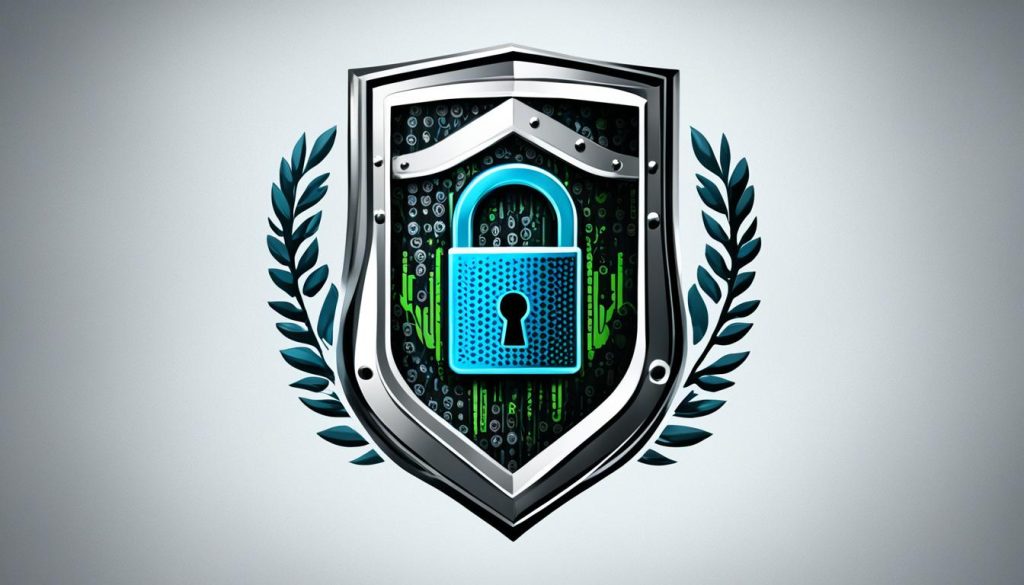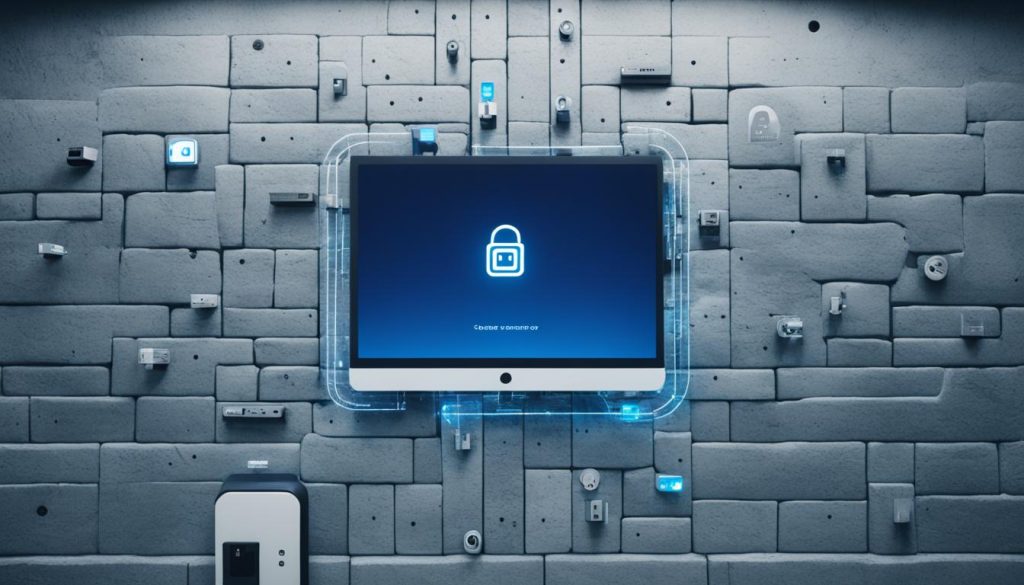The world of entertainment has evolved significantly over the past few decades, and one of the most prominent shifts has been the transition from traditional cable and satellite television to Internet Protocol Television (IPTV). IPTV allows users to access television content over the internet, giving them more control and flexibility over what they watch and when they watch it. As IPTV services continue to gain popularity, providers must address critical issues like content protection, video encryption, conditional access, licence management, anti-piracy measures, secure content delivery, and DRM compliance to ensure a seamless viewing experience for their subscribers.
Key Takeaways
- IPTV providers must ensure robust digital rights management (DRM) to protect their content from unauthorised access and distribution.
- Effective DRM strategies involve implementing content encryption, conditional access, and licence management controls.
- IPTV providers need to implement anti-piracy measures and secure content delivery mechanisms to comply with licensing agreements and prevent content theft.
- Comprehensive DRM solutions enable IPTV providers to deliver a seamless and secure viewing experience for their subscribers.
- Staying up-to-date with the latest DRM technologies and best practices is crucial for IPTV providers to remain competitive and compliant in the evolving media landscape.
Digital Rights Management in IPTV: Securing Content Delivery
The increased popularity of the Internet as a global network for delivery of audio and video content creates both opportunities and challenges to content providers. Because the Internet is a global network, it offers the opportunity to deliver content to a worldwide customer base. However, the open nature of the Internet presents challenges in protecting content from unauthorised use and distribution. Therefore, content providers willing to take advantage of this opportunity need to identify the right technology for secure delivery of both streaming and on-demand content to end-users. Such technology should address multiple digital rights management (DRM) issues, such as secure content distribution, protection from content re-distribution, copy protection, and control of play-limit and content expiration.
Business Opportunity: The Need for Secure Content Distribution
As a pioneer in the area of content distribution over the Internet, SysMaster has developed one of the best technology solutions for secure content delivery over the Internet. SysMaster’s content delivery solution offers secure distribution of IPTV and Video-on-Demand (VOD) content directly to the TV sets of end users. It consists of set top boxes (STB), head-end servers, middleware, billing server, and video streaming servers.
SysMaster's Content Delivery Solution with DRM
SysMaster’s content delivery solution with digital rights management is based on H.264 and MPEG4 video compression technology and utilises 128 bit SSL encryption, similar to that used in SSL secured web sites, to protect content streams during distribution. The SSL technology ensures that content streams cannot be intercepted and decoded by unauthorised users. Additional layers of DRM include support for Certification Authority, encrypted content recording, personalised recording and others.
Features of SysMaster's DRM Technology
SysMaster’s content delivery solution with digital rights management offers a range of features to ensure secure content delivery and protect against piracy. These include 128-bit SSL encryption for content streams, support for Certification Authority, anti-recording and personalised recording controls, encrypted recording and play limit control, and content expiration management.
How do IPTV providers ensure DRM (Digital Rights Management)?
SysMaster’s content delivery solution utilises 128 bit SSL encryption, commonly used to secure Web communications, for all content streams. The SysMaster’s content streaming server utilises a Certification Authority (CA) server, located at the provider’s premises, to exchange Public and Private keys (“handshake procedure”) before establishing an SSL stream. All keys are dynamically generated and personalised for each client connection to ensure the highest level of communication security.
Support for Certification Authority
SysMaster’s content delivery solution supports a Certification Authority (CA) feature which ensures that video content streamed through alternative providers is properly authenticated with the CA and encrypted. That feature also allows content to be tracked and managed even when it is streamed outside the original network. For example, provider “A” can sub-license its stream to provider “B” and receive royalties on a per unique subscriber or per file access basis. Every time a subscriber from the network of provider “B” wants to gain access to the encrypted stream, he/she has to authenticate with the CA of provider “A”. This way provider “A” knows in real-time how many subscribers of provider “B” have accessed particular stream or file. Such information can be used for billing, reporting and management purposes.
Anti-Recording and Personalized Recording Controls
SysMaster’s content delivery solution offers an anti-recording feature. When turned on, that feature prevents content recording via the set top boxes of the end-user. Service providers have the flexibility to centrally turn on or off the anti-recording feature. The solution also supports Personalised Recording feature which allows recording of content but prevents distribution of recorded files. When such feature is enabled, the solution will allow end-users to record content but such content can only be played by the original device that recorded it. That prevents uncontrolled content sharing and distribution in open network environment.
Encrypted Recording and Play Limit Control
SysMaster’s technology allows all recorded content to be encrypted in real-time utilising 128 bit SSL encryption. The encryption of the recorded content guarantees that only Tornado devices or SysMaster’s DMC software can decrypt and play it. Encrypted files cannot be shared or distributed openly, because they can only be decrypted using specialized and licensed hardware and software tools manufactured by SysMaster. SysMaster’s content delivery solution also supports play limit control, which is a standard feature for most DRM implementations. Such feature allows placing restrictions on how many times recorded content can be played by the end-user.
Content Expiration Management
SysMaster’s content delivery solution offers the ability to “expire” recorded content. For example, a service provider can allow end-users to record and play a particular content only for a predefined period of time (e.g. 48 hours); upon expiration of that period, recorded content cannot be played.

Conclusion
In the ever-evolving landscape of IPTV, content archiving and storage remain crucial components of a successful service. IPTV providers must address the challenges of volume, quality, security, and compliance to deliver an exceptional viewing experience to their subscribers while navigating the complexities of content. By implementing robust DRM strategies like those offered by SysMaster, IPTV providers can secure their content distribution, protect against piracy, and ensure compliance with licensing agreements, ultimately providing a seamless and secure experience for their customers.
The implementation of advanced DRM technologies, such as those provided by SysMaster, empowers IPTV providers to safeguard their valuable content and satisfy the demands of content owners and subscribers alike. This comprehensive approach to content protection, which includes features like 128-bit SSL encryption, Certification Authority integration, and granular control over recording and playback, ensures that IPTV services can thrive in the face of evolving digital rights management requirements.
As the IPTV landscape continues to evolve, the ability to effectively manage and secure content will remain a key differentiator for service providers. By partnering with industry leaders like SysMaster, IPTV providers can stay ahead of the curve, delivering a compelling and compliant viewing experience that builds customer loyalty and trust.
FAQ
How do IPTV providers ensure DRM (Digital Rights Management)?
IPTV providers use various DRM technologies to secure content delivery, such as 128-bit SSL encryption, support for Certification Authority, anti-recording and personalized recording controls, encrypted recording, play limit control, and content expiration management.
What is the importance of DRM in the IPTV industry?
DRM is crucial for IPTV providers to protect content from unauthorized use and distribution, ensuring secure delivery of both streaming and on-demand content to end-users and compliance with licensing agreements.
How does SysMaster’s content delivery solution address DRM?
SysMaster’s content delivery solution utilizes 128-bit SSL encryption, a Certification Authority feature, anti-recording and personalized recording controls, encrypted recording, play limit control, and content expiration management to provide a comprehensive DRM solution for IPTV providers.
What are the key features of SysMaster’s DRM technology?
SysMaster’s DRM technology includes features such as 128-bit SSL encryption for content streams, support for Certification Authority to authenticate and encrypt content, anti-recording and personalized recording controls, encrypted recording, play limit control, and content expiration management.
How does SysMaster’s DRM technology prevent unauthorized content distribution?
SysMaster’s DRM technology prevents unauthorized content distribution through features like encrypted recording, personalized recording, and content expiration management, ensuring that recorded content can only be played on the original device and expires after a predefined period.



